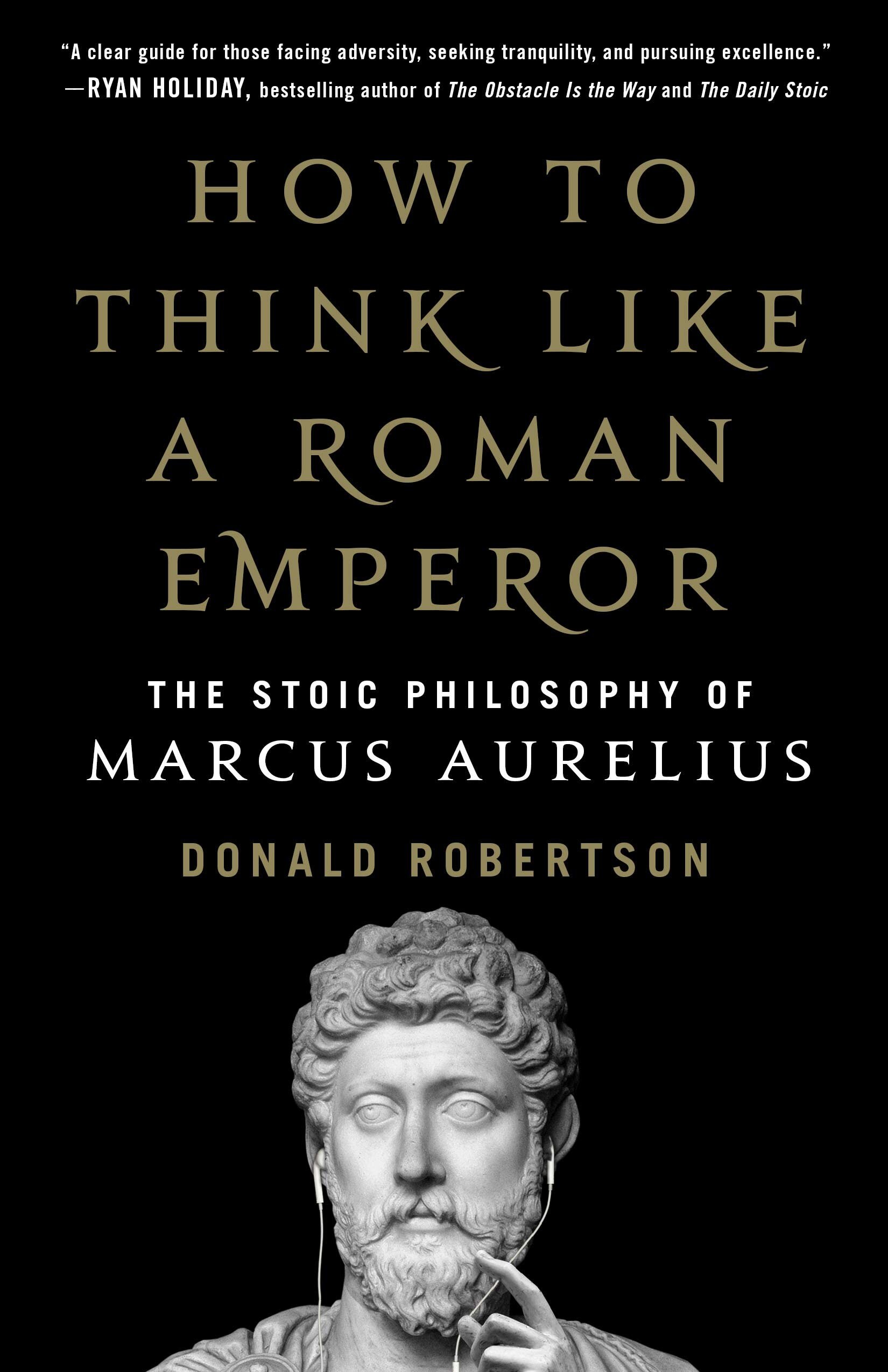How to Think Like a Roman Emperor – by Donald Robertson
Recommendation: 8/10. Date read: 3/15/21.
A unique approach that ties together stories from Roman emperor Marcus Aurelius’s life with Stoic philosophy and modern psychology. As Robertson walks through the chapters alongside Marcus, it’s clear what a rare leader he was with Stocisim as his anchor. To lead, you must care about something bigger than yourself. As Marcus knew, no number of bodyguards could be enough to shield a ruler who does not possess the goodwill of his subjects. There are great chapters on building self-awareness, navigating difficult decisions, and finding strength in kindness.
See my notes below or Amazon for details and reviews.
My Notes:
To lead, you must care about something bigger than yourself:
No number of bodyguards is enough to shield a ruler who does not possess the goodwill of his subjects.
Rhetoric vs. Philosophy:
Epictetus on the difference between a Sophist and a Stoic: “the former speaks to win praise from his audience, the latter to improve them by helping them to achieve wisdom and virtue. Rhetoricians thrive on praise which is vanity; philosophers love truth and embrace humility. Rhetoric is a form of entertainment, pleasant to hear, philosophy is a moral and psychological therapy, often painful to hear because it forces us to admit our own faults in order to remedy them.” DR
External advantages:
“Those who squander their sudden wealth end up more miserable than they could have imagined. When handled badly, eternal advantages like wealth do more harm than good.” DR
Strength in kindness:
Marcus Aurelius believed true strength consisted of one’s ability to show kindness, not violence or aggression. During his reign, he pledged that not a single senator would be executed. He kept this promise even when he was betrayed by several during a civil war in the east.
Decision making:
Do not let ambiguity linger for too long…Once Marcus came to a decision, he implemented it with unwavering determination. See Ernest Shackleton for a similar example in moments of crisis.
Marcus was also meticulous in examining matters that required careful deliberation (decisions that were not easily reversible). He would challenge his first impression and patiently consider the issue.
Marcus was never taken in by charlatans nor did he engage or attack them. He simply ignored those who were a drain on his time and energy.
Decatastrophizing:
“Involves reevaluating the probability and severity of something bad happening and framing it in more realistic terms.” Instead of “What if?” shift to thinking “So what?”
Upsetting experiences aren’t timeless. Everything has a before, during, and after phase.
Self-awareness:
“Those who assume they have the fewest flaws are often the ones most deeply flawed in the eyes of others.” DR
The obstacle is the way:
“What do you think Hercules would have amounted to if there had not been monsters such as the Nemean lion, the Hydra, the stag of Artemis, the Erymanthian boar, and all those unjust and bestial men for him to contend with? Why, if he had sat at home, wrapped up asleep in bedsheets, living in luxury and ease, he would have been no Hercules at all!” Epictetus
Joy:
“The Stoics tended to view joy not as the goal of life, which is wisdom, but as a by-product of it, so they believed that trying to pursue it directly might lead us down the wrong path sought at the expense of wisdom.” DR
Expectations
Reverse clause = undertaking action while calmly accepting that the outcomes aren’t entirely within your control. Expectations are reserved for what’s within your sphere of control.
“Virtue consists in doing your very best and yet not becoming upset if you come home from the hunt empty-handed.” DR

